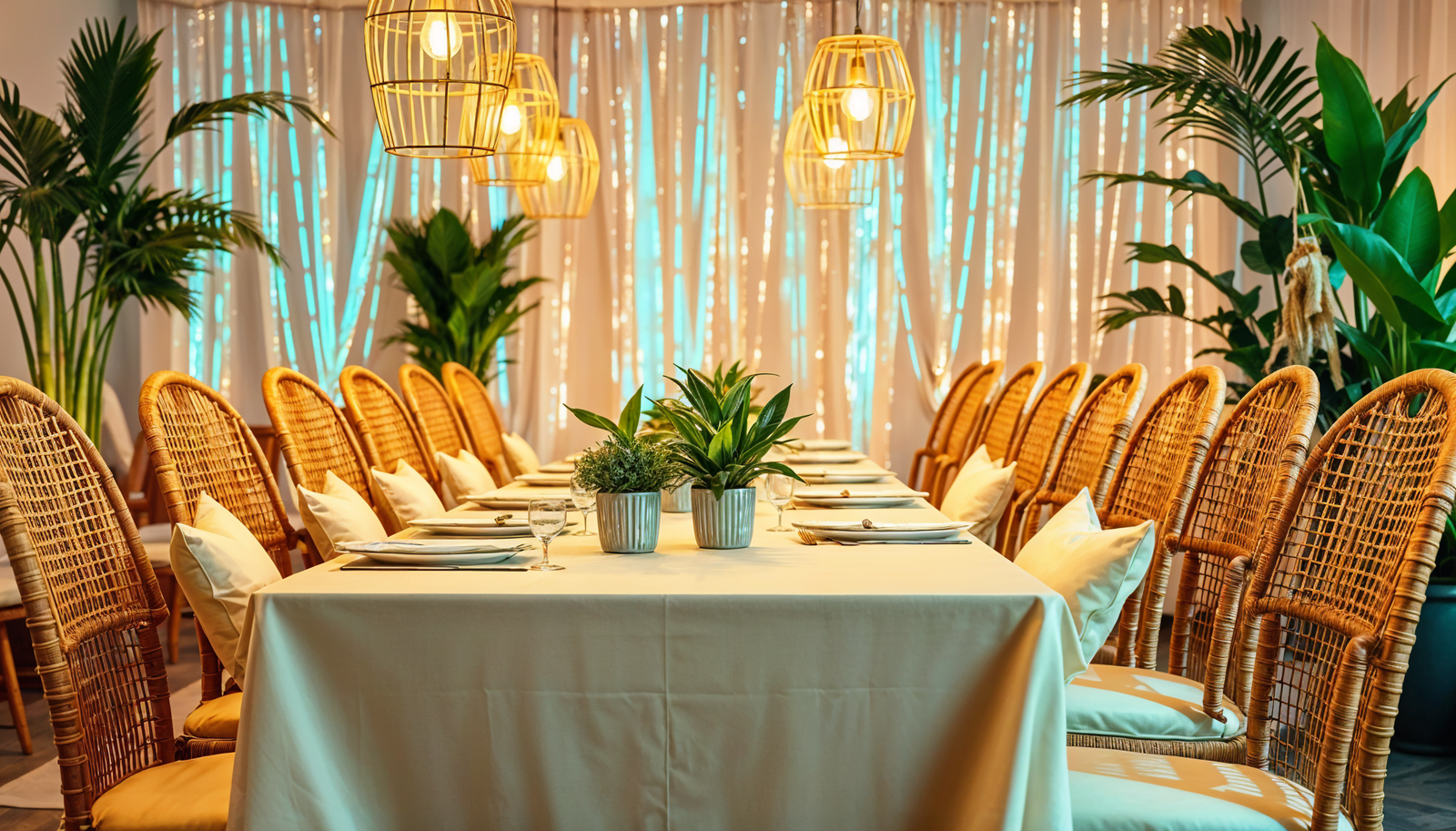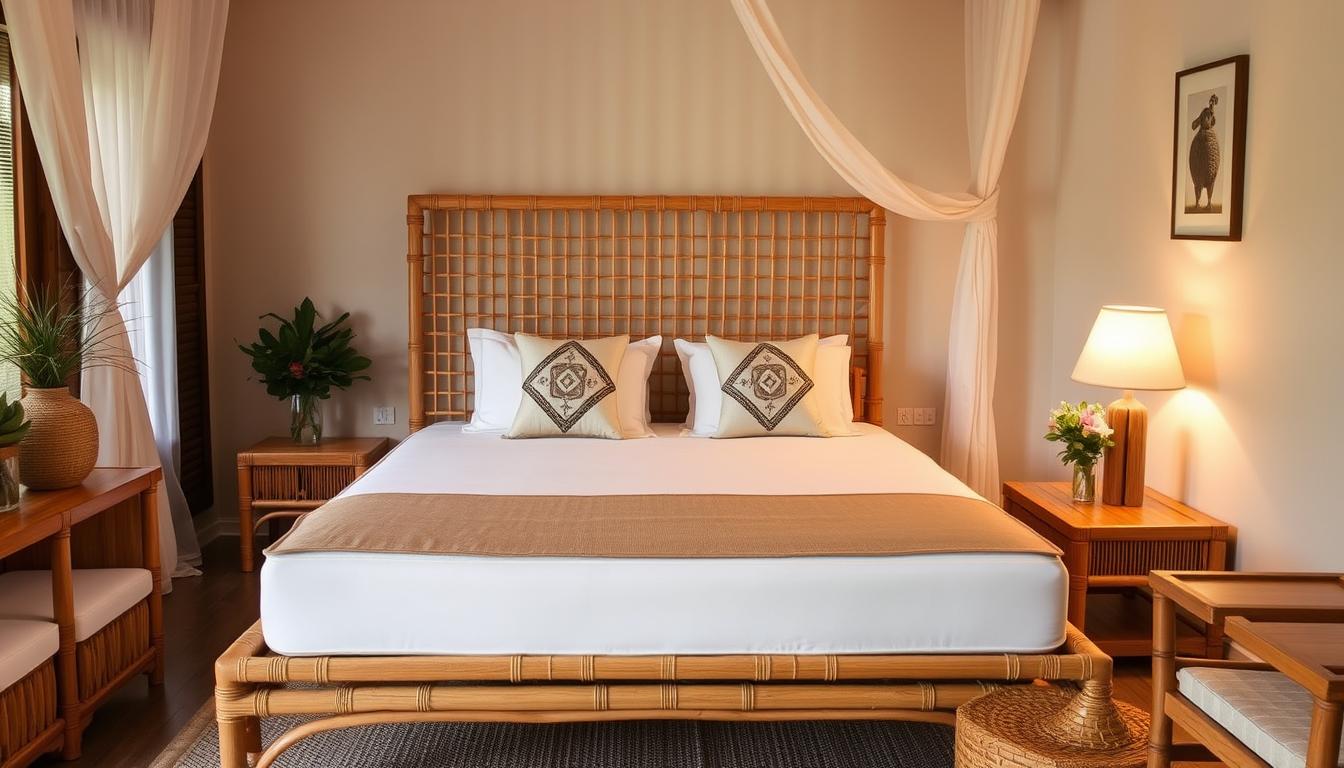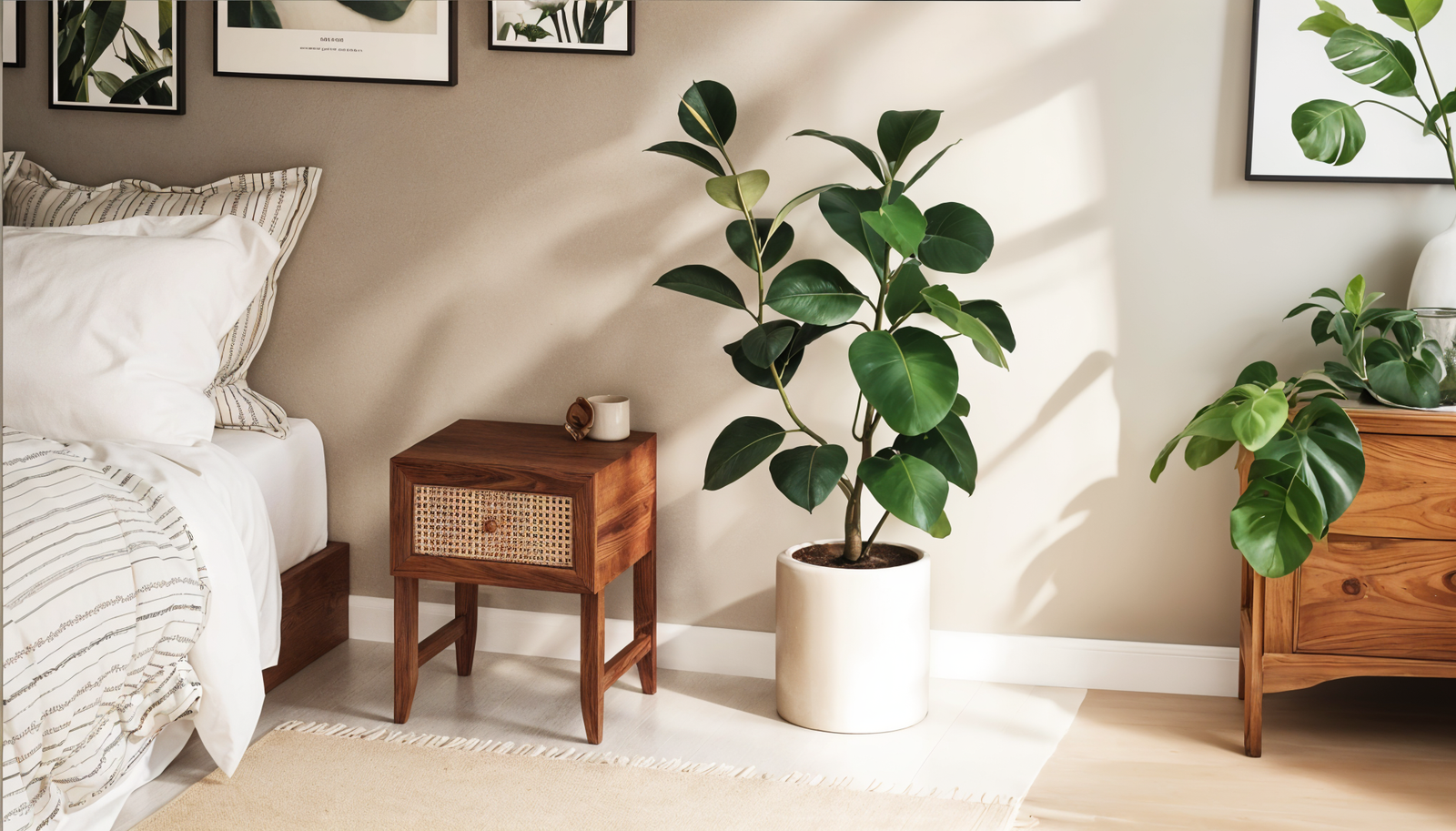🤍 Unmatched Quality, Authentic Craftsmanship
🤍 Unmatched Quality, Authentic Craftsmanship
🤍 Unmatched Quality, Authentic Craftsmanship
Welcome to our article on what is a Zen style, a design philosophy that brings simplicity and serenity into our lives.
Zen style is inspired by the principles of Zen Buddhism and emphasizes creating harmonious and peaceful living spaces.
By incorporating Zen elements into interior design, we can create environments that promote relaxation, mindfulness, and a sense of calm and well-being.
Zen style is all about embracing minimalism, natural beauty, and the use of organic materials.
It finds its roots in Japanese and Chinese culture and is known for its focus on balance and harmony.
In a world filled with distractions, Zen style provides a much-needed sanctuary for us to unwind and find inner peace.

The Zen style is deeply rooted in the rich cultures of Japan and China.
It takes inspiration from the profound philosophy of Zen Buddhism, which emphasizes simplicity, mindfulness, and the journey towards enlightenment.
In Japanese culture, Zen gardens were created as sacred spaces for meditation and reflection.
These serene gardens were meticulously designed to evoke a sense of tranquility and harmony.
The philosophy of Zen design revolves around the idea of embracing balance and harmony, both visually and energetically, within a space.
At the heart of Zen style is the concept of harmony and balance.
This design philosophy seeks to create a sense of equilibrium within a space, promoting a feeling of peace and tranquility.
Every aspect of Zen-style principles, from the arrangement of furniture to the choice of materials, is carefully considered to foster a sense of balance.
The clean lines, uncluttered spaces, and natural color palettes prevalent in Zen style all contribute to the creation of a harmonious atmosphere.
Zen style in interior design embodies characteristics of zen style like simplicity, minimalism, and a focus on natural beauty.
It is a design philosophy that promotes harmony and balance within a living space.
By embracing Zen principles, one can create an environment that exudes tranquility, mindfulness, and relaxation.
The principles of Zen aesthetics guide the design choices in creating a Zen-style space.
Asymmetry, simplicity, and the use of organic materials are key elements in Zen design.
By embracing asymmetry, a sense of balance is achieved, reflecting the imperfections found in nature.
In Zen design, simplicity is celebrated as the foundation of beauty.
The concept of "less is more" is evident in every aspect of a Zen-style interior, from furniture to decor.
Uncluttered spaces promote a sense of calmness and foster a mindful living environment.
Natural beauty is also highlighted, with an emphasis on incorporating elements from the natural world.
By utilizing earthy textures, calming colors, and natural materials, a Zen-inspired interior can evoke a serene and peaceful atmosphere.
| Zen Style Interior Design | Zen Aesthetics | Simplicity and Natural Beauty |
|---|---|---|
| Emphasizes simplicity, minimalism, and natural beauty | Incorporates principles of asymmetry, simplicity, and organic materials | Celebrates simplicity, uncluttered spaces, and the use of natural materials |
| Promotes tranquility, mindfulness, and relaxation | Creates a sense of balance and connection with nature | Elicits a serene and peaceful atmosphere |
Zen style living spaces are characterized by their simplicity, serenity, and minimalism.
These spaces are designed to create a sense of calm and promote relaxation.
In Zen style living spaces, the focus is on function over form, with furniture and decor that serve a practical purpose while maintaining a minimalistic aesthetic.
Zen living spaces embrace natural light, open floor plans, and a lack of clutter.
The goal is to create an environment that allows for easy movement and a clear mind.
By eliminating unnecessary objects and distractions, Zen style living spaces promote a sense of peace and tranquility.
However, it is important to note that minimalism and Zen are not the same.
While minimalism emphasizes decluttering and reducing possessions, Zen style goes beyond that.
By understanding the differences between minimalism and Zen, one can create an authentic Zen living space that embraces the essence of Zen philosophy and design principles.
Zen style in architecture incorporates elements that create a harmonious and serene living environment.

The focus is on simplicity, natural materials, and a connection with nature.
Clean lines and minimal ornamentation are key characteristics of Zen architecture, creating a sense of tranquility and clarity.
One of the prominent elements in Zen-inspired architecture is the use of sliding doors, which provide flexibility and a seamless flow between indoor and outdoor spaces.
These doors allow natural light to fill the rooms, creating a bright and uplifting atmosphere.
Tatami mats, traditional Japanese flooring made of rice straw, also play a significant role in Zen architecture, adding a touch of tradition and simplicity.
Zen gardens, known as "karesansui," are another significant element in Zen architecture.
These gardens combine carefully arranged rocks, gravel, and plants to create a miniature representation of nature.
The simplicity and serenity of Zen gardens promote peace of mind and reflection.
Zen style greatly influences interior decoration, with a focus on optimizing space and light while incorporating natural materials.

In Zen design, spaces are intentionally left uncluttered, allowing for open and airy layouts that promote a sense of spaciousness.
Natural light is also a key element, as it creates a bright and uplifting atmosphere.
Material choices for a Zen-inspired home often include organic and eco-friendly materials such as wood, bamboo, and stone.
The use of these materials adds warmth and a connection to nature.
By considering the use of space, light, and materials, one can create a Zen-inspired interior that fosters a sense of peace and serenity.
When it comes to creating a Zen-style space, attention to detail and a mindful approach are key.
By carefully selecting furniture and decor while integrating natural elements and textures, you can transform your living space into a serene oasis that promotes relaxation and tranquility.

In order to achieve a Zen style, it's important to choose furniture and decor that embodies simplicity, functionality, and a sense of calm.
Opt for minimalist designs with clean lines and neutral colors.
This will help to create an uncluttered and peaceful environment.
When selecting furniture, focus on pieces that serve a practical purpose and contribute to a sense of relaxation.
Comfortable seating options, such as low-profile chairs or floor cushions, can be combined with natural materials like bamboo or wood to create a harmonious and inviting atmosphere.
When it comes to decor, less is more in Zen style.
Choose a few carefully curated pieces that have personal significance or evoke a sense of tranquility.
Intentionally place these items to create a balanced and harmonious arrangement.
This mindful curation will promote a sense of peace and serenity in your space.
Natural elements play a crucial role in Zen design, as they help to create a connection with the natural world and foster a sense of grounding and calmness.
Integrating natural elements in your space can be as simple as adding indoor plants or incorporating natural materials like stone and wood.
Plants are particularly beneficial in Zen-style spaces as they purify the air, enhance the visual appeal, and bring a touch of nature indoors.
Consider adding plants such as peace lilies, bamboo, or bonsai trees to infuse life and freshness into your space.
Textures also play an important role in creating a Zen atmosphere.
Incorporate materials like bamboo, linen, and wood to add visual interest and create a tactile experience.
These organic textures will contribute to a sense of calm and relaxation.
By following these steps and applying a mindful approach, you can transform your living space into a Zen-inspired sanctuary that promotes peace and tranquility.
Remember to select furniture and decor with intention, incorporating natural elements and textures that evoke a sense of harmony and balance.
Creating a Zen style space is not just about the physical environment but also about cultivating a mindful and peaceful mindset.
Take the time to embrace the simplicity, serenity, and natural beauty that Zen design offers, and you will create a living space that nurtures your well-being and promotes a more harmonious lifestyle.
When it comes to interior design, two popular philosophies that often come to mind are Zen style vs minimalism.
While there are similarities between the two, there are also distinct differences that set them apart.
To visually illustrate the differences between Zen style and minimalism, let's take a look at the following:
| Zen Style | Minimalism |
|---|---|
| Emphasizes nature and organic materials | Focuses on simplicity and functionality |
| Seeks balance and harmony in design | Prioritizes clean lines and minimal ornamentation |
| Embraces imperfections and asymmetry | Strives for perfection and symmetry |
| Promotes mindfulness and tranquility | Creates a sense of clarity and openness |
As you can see, both Zen style and minimalism have their own unique characteristics and approaches to design.
Understanding these differences can help you determine which style aligns best with your personal preferences and design goals.
Zen style living can have a profound impact on our overall well-being, promoting both psychological and physical health.
By creating a Zen-inspired environment, we can cultivate a sense of peace and tranquility in our daily lives that contributes to our overall happiness and well-being.
A Zen-inspired environment promotes relaxation, reduces stress, and enhances mindfulness.
The serene and clutter-free space allows us to declutter our minds and focus on the present moment, releasing mental burdens and fostering a sense of calmness.
Studies have shown that being in a Zen-inspired environment can improve mental clarity, increase self-awareness, and enhance overall emotional well-being.
The Zen aesthetic, characterized by natural materials and a harmonious design, can also positively impact our physical health.
By incorporating organic elements and natural materials like wood, bamboo, and stone, we create a more eco-friendly and sustainable living environment.
These materials not only add beauty to our space but also contribute to improved indoor air quality, reducing the presence of harmful chemicals and allergens.
Furthermore, the minimalistic and uncluttered nature of Zen-inspired spaces promotes a clean and organized living environment that supports physical well-being.
By embracing Zen style in our living spaces, we can foster a balanced and harmonious lifestyle.
The serenity and simplicity of a Zen-inspired environment remind us to prioritize self-care and engage in mindful practices.
This can lead to a greater sense of balance in all aspects of our lives, including work, relationships, and personal well-being.
Through the integration of Zen principles, we are able to create an environment that supports our physical, mental, and emotional health, promoting a life of serenity and well-being.
Creating a serene and harmonious environment is key when it comes to crafting the perfect Zen style atmosphere.
By incorporating Zen style features into your space and maintaining simplicity and serenity, you can achieve a sense of tranquility and inner peace.
Here are some essential tips to help you create a Zen-inspired atmosphere in your home:
When designing your Zen style space, it's important to consider incorporating elements that promote a calm and peaceful ambience.

By following these essential tips, you can create a Zen-inspired atmosphere that promotes relaxation, serenity, and a sense of inner peace.
Incorporating Zen style features and maintaining simplicity and serenity in your design choices will help you cultivate a harmonious living space that enhances your overall well-being.
The principles of Zen style can also be applied to outdoor living spaces, such as gardens and patios.
Designing a Zen garden involves creating a space for mindful reflection and incorporating elements such as raked gravel, rocks, and water features.
Outdoor Zen spaces provide an opportunity for enhanced serenity, connecting with nature, and creating a peaceful oasis within your own backyard.
To create a Zen garden, start by defining the space and layout.
Use raked gravel or sand to represent water or waves, and strategically place rocks and stones to symbolize mountains or islands.
Incorporate plants that evoke a sense of tranquility, such as bamboo, cherry blossoms, or moss.
Consider adding a water feature, such as a small fountain or pond, to enhance the calming atmosphere.
Create seating areas with comfortable cushions or wooden benches, allowing you to sit and meditate amidst the soothing natural elements.
Outdoor Zen spaces extend the serene atmosphere beyond the walls of your home.
Take a look at the advantages and tips for designing outdoor Zen:
| Benefits of Zen Style Outdoor Living: | Tips for Designing Outdoor Zen Spaces: |
|---|---|
|
|

When it comes to creating a Zen-inspired living space, having the right essentials is key.
That's where Mojo Boutique comes in. We offer a carefully curated selection of furniture, decor, and accessories that align perfectly with the principles of Zen design.
At Mojo Boutique, you'll find a range of minimalist furniture pieces that combine functionality and style.
Our collection includes clean-lined sofas, sleek coffee tables, and minimalist storage solutions that will complement any Zen-inspired space.
In addition to furniture, we also offer a variety of decor items that add a touch of tranquility to your home.
From soothing wall art to nature-inspired sculptures, our decor selection will help create a sense of serenity and balance in your living space.
To complete your Zen-inspired look, we provide a wide range of accessories that incorporate natural materials and calming color palettes.
Think bamboo baskets, ceramic vases, and soft textiles in earthy tones.
These elements will bring a sense of nature and peace to your home.
With Mojo Boutique, creating a Zen-inspired living space has never been easier.
Visit our online store or browse our collection in person to discover the Zen style essentials that will transform your home into a sanctuary of tranquility and serenity.
Now that you have read the above article, maybe you still have a couple of questions on this topic, so we will answer these questions below.
Zen style is a design philosophy that emphasizes simplicity, serenity, and balance. It creates a harmonious living space that promotes relaxation and mindfulness.
Zen style in interior design is characterized by simplicity, minimalism, and a focus on natural beauty. It incorporates elements of Zen aesthetics, including asymmetry and the use of organic materials.
Zen style living can have positive impacts on both psychological and physical well-being. It promotes relaxation, reduces stress, enhances mindfulness, and fosters a sense of peace and tranquility.
In conclusion, Zen style is the essence of simplicity, serenity, and balance in modern living.
By embracing Zen principles and incorporating them into our interior design, we can create a harmonious living space that promotes relaxation, mindfulness, and a sense of calm in our daily lives.
The Zen style philosophy invites us to prioritize well-being, tranquility, and a deeper connection with the present moment.
Zen style is more than just a design trend; it is a way of life that encourages us to simplify our surroundings and find beauty in the simplest of things.
By embracing the essence of Zen style in our homes, we create an environment that supports our physical and mental well-being.
The clean lines, uncluttered spaces, and natural materials of Zen design help to create a sense of serenity and harmony in our living spaces.
By embracing Zen principles, we can cultivate a harmonious lifestyle that extends beyond our physical spaces.
The practice of mindfulness and being present in the moment allows us to find peace and tranquility in our everyday activities.
By simplifying our lives, letting go of unnecessary distractions, and embracing the beauty of simplicity, we can create a space where our minds can rest, and our spirits can soar.
So, let us embark on a journey of Zen living, where simplicity, serenity, and balance guide us towards a life filled with peace, mindfulness, and a deeper appreciation for the beauty of the present moment.


